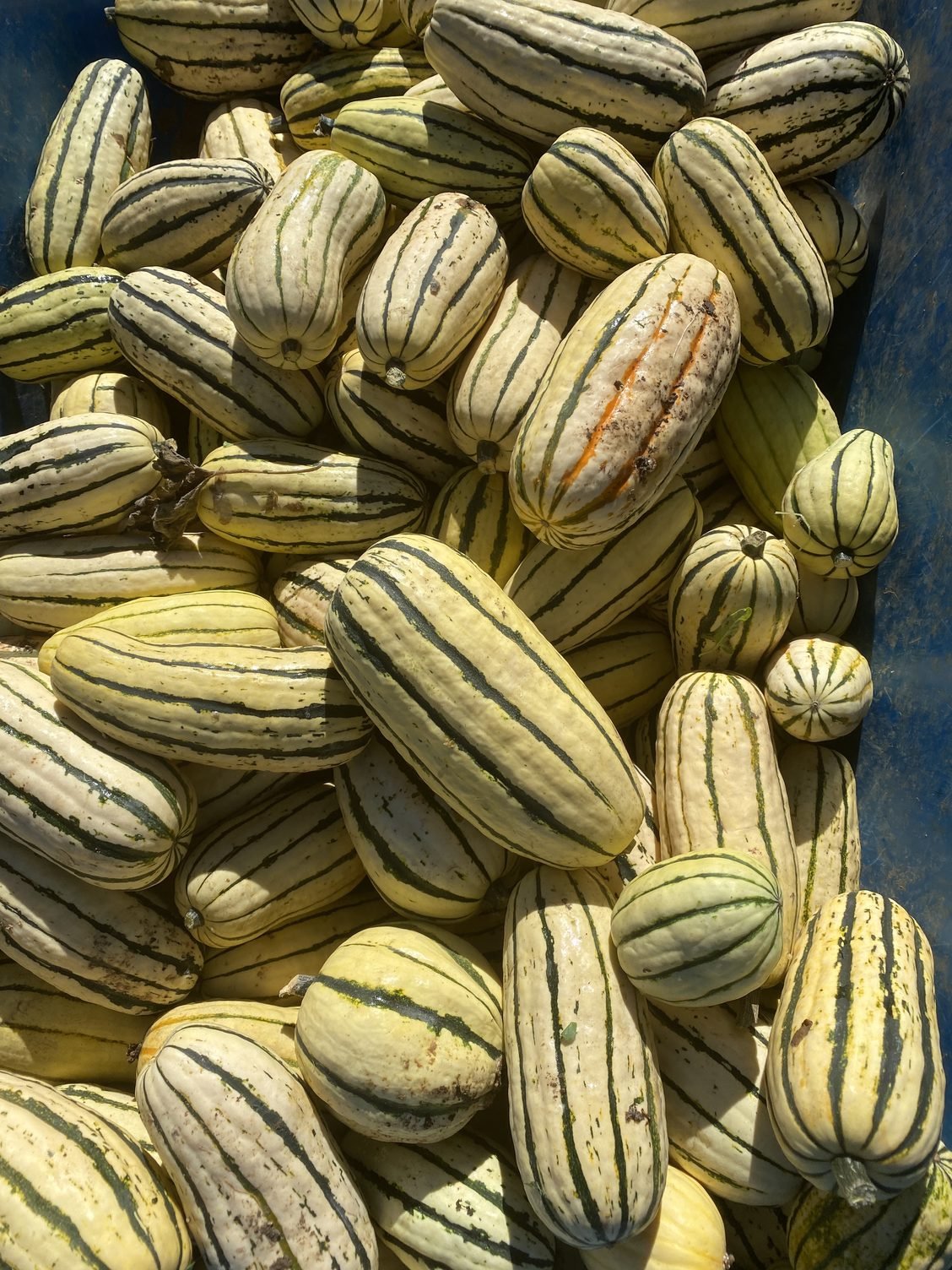First winter squash of the season!!
The first full week of October is here and our winter squash is ready to be eaten.
We have been keeping a watchful eye on when it was ready and after a little taste testing we harvest most of it last Thursday. After letting it sit in the field until Sunday we boxed it up in the barn.
There are three varieties that we grew this year which are Delicata, Butterbaby and Honeynut. They are all delicious and can be cooked in many different ways.
Delicata is cylindrical for the most part with orange or green stripes. It has a creamy flavor and texture along with a delicate skin which can be eaten. Roasting is the most common way it is cooked either cut in half or in smaller pieces.
Butterbaby is a mini of the typical butternut squash that was a delicious flavor and one of them is perfect for two people to share.
Standing out from the others is Honeynut which has a mostly burnt orange skin. It tastes excellent and is bigger and more dense than the Butterbaby.
While we have lots of winter squash we are running out of our onions and shallots. They have been very popular and after this weeks markets we may have very little or none remaining, even for ourselves. We have already seeded next years onions and they are looking fabulous!
Over the next few weeks even more fall crops will continue to be ready to harvest in larger amounts including radishes, turnips, bok choy and broccolini. The carrots and beets are growing rapidly in this consistent warm weather but are still a little while away from being ready to harvest.
The lettuce is looking fantastic and we have lots of it growing in the ground plus even more in the greenhouse getting ready to be transplanted. Every week we are seeding even more lettuce with a few large plantings coming soon.
Our red butter lettuce was the most popular one in the spring and we will have a few of them at our markets this week.
After planting so many bunching greens and broccoli last week that are looking very well we have started to weed them so that they are not competing with weeds for water and nutrients.

